
Ten More Myths of Zune: Part 2
The latest iPod Killer from Microsoft has raised a lot of questions. RoughlyDrafted Magazine is full of answers, from the initial critique in Microsoft iPod-Killer Myth, to the tongue in cheek 10 Ways Microsoft can Salvage their iPod Killer, to the brutal look at the company’s fanciful Zune marketing strategies in 10 iPod vs. Zune Myths, and this week’s Ten More Myths of Zune. Here’s part two of why many analysts are getting it all wrong.
Ten More Myths of Zune, part two.
Myth 6: Microsoft's reputation for crushing competition will help the Zune.
Microsoft certainly built a reputation for cleaning up the markets it chose to enter. However, as pointed out in The Microsoft Invincibility Myth, those past successes have been limited to software markets tied to the company’s monopoly position with Windows.
Microsoft's prior success with Windows conspicuously avoided direct competition, leveraged price advantages, and blazed new trails into virgin markets. None of those factors will apply to the Zune.
As detailed in the Rise and Fall of Platforms, the Windows Price Paradox prevented any head to head competition in PC operating system software, allowing Microsoft to leisurely leverage the price advantages of commodity PC hardware against minority platforms such as the Amiga, the Macintosh, and Unix workstations from various vendors.
With the Zune, Microsoft can’t avoid direct competition, and has no price advantage; it had to significantly lower the Zune’s price just to match the iPod.
Further, there are lots of less expensive iPod models available, particularly when the large secondary market and refurbished models are included.
Microsoft's past success with the PC involved opening up and developing new markets. It didn't have to push the Mac out of corporate cubes to establish Windows; there simply were no existing computers in many of the markets Microsoft pioneered.
With the Zune, Microsoft isn't blazing into virgin, uncharted territory. It faces very entrenched competition, not only with the iPod, but a variety of other players who are not excited to lose their existing share of the market: Sony's Walkman, SanDisk's Sansa, Creative's Zen, and all the other WMA hardware vendors.
The Secret Failures of Microsoft demonstrated how the company simply does not perform well with direct competition, and particularly in consumer electronics.
If anything, Microsoft's past efforts to destroy competitors will embolden its own partners to distance themselves from PlaysForSure. SanDisk has already aligned its second place Sansa player with a partnership of Real's Rhapsody music service and Best Buy retail stores.
While this treo of also-rans certainly isn't likely to take the world by storm, it signals the dissatisfaction of PlaysForSure partners who have realized that joining forces with Microsoft is like offering to help Hannibal Lecter get dinner ready.
Myth 7: Zune only competes against the iPod, not PlaysForSure Players
Microsoft is trying to spin the idea that the Zune is only competing against the iPod, not devices tethered to its PlaysForSure WMA partnerships. Conceptually, PlaysForSure and Zune will peacefully coexist as iPod Killers, bound in a non-competing pact against Apple.
Despite the focus on Zune, Microsoft is still hosting the PlaysForSure website, which not only features the discontinued Dell Ditty (oops!) but optimistically proclaims: "Choose your device. Choose your music. Know it's going to work."
Ugg! What a punch in the gut for both partners and customers who believed that line. As an American President said, "Fool me once, shame on... shame on you. Fool me... you can't get fooled again."
Apparently Microsoft thinks the world is dumb enough to fall for another "OS/2 is the future of Windows" campaign, running in parallel with efforts to kill OS/2.
Those with a basic grasp of history remember that Microsoft led software developers into supporting its IBM partnership on OS/2 while also continuing work on the rival Win32 platform. Once it no longer needed IBM, Microsoft dumped its partner, as well as all the vendors who had been developing applications for OS/2. 

That ensured the only Windows applications available at launch were Microsoft's own Word and Excel. HA HA!
Of course, neither Microsoft nor its parters can decide what the public will buy. As explained in the first 10 iPod vs Zune Myths, companies don't get to pick and choose what the market is going to do, they have to play their cards and see how the game falls.
Back in Jan 2004, when Apple had a 31% share of the music player market with the original iPod, it attempted to take on lower-end flash players with a smaller hard disk player, the iPod mini. This worked out for Apple, but it was a big risk: the mini could easily have eaten into full size iPod sales rather than taking on rival flash players.
Apple risked a similar play with the Shuffle. Would it expand iPod market share, or simply cannibalize mini sales?
Apple managed to play its cards right by clearly differentiating the various models to create separate and distinct markets, even where the product lines naturally overlapped.
That being the case, why will Zune and the nearly identical Toshiba Gigabeat--and all the other PlaysForSure players--not compete over the same sale? Only because of Microsoft's wishful thinking?
Microsoft offers no differentiation at all between the new Zune and the existing PlaysForSure devices, other than breaking PlaysForSure compatibility. Incompatibility isn't exactly a differentiating feature consumers demand.
The vocal minority of PC enthusiasts who are excited about the Zune were also the best hope of a target audience for all of the PlaysForSure manufacturers.
Myth 8: Zune pioneers novel sharing features
Microsoft's marketing suggests that wireless sharing is a novel concept. It isn't, as MusicGremlin demonstrates; Microsoft's version is just neutered to the point of being non-functional. The restriction to only play shared songs three times within three days means it really only allows users to share a link to a song, which isn’t novel at all.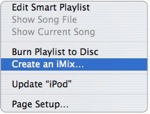

Users can already share links to songs in far more efficient ways. Apple introduced the iMix in the iTunes store some time ago, which allow users to put together a mix of songs that can be rated by other users and downloaded individually or as a set.
Mac users can also drag a playlist from iTunes to iWeb and then publish to .Mac, which automatically builds a shared playlist for their blog, linked directly to the iTunes store.
The difference? Apple's .Mac costs around $80/year, while Zune's ForSureDon’t subscription costs $180 a year. That gives Apple’s users an extra $100 windfall to buy whatever music they want. Also, the music they choose won't explode at the end of the year.
Both iMixes and iWeb publishing make far more sense than trying to squirt a song over an ad hoc wireless session. On the Zune, not only are squirts executed after three days, but they can’t be squirted to others, ending any potential for viral community squirting.
Myth 9: Wireless networking is a good way to squirt songs
How much sense does wireless make in squirting songs? Consider that 802.11g WiFi wireless boasts a speed of 54 Mbit/sec, with a real-world throughput of around 20 Mbit/sec. That’s more than 20 times slower than a normal dock sync using USB 2.0 (480 Mbit/sec).
WiFi is only about double the anemic top speed of USB 1.0. When the iPod premiered half a decade ago, it used Firewire, as opposed to the USB 1.0 in the Creative Nomad. That made the iPod far faster to sync, and was a major differentiating feature that drove iPod sales.
Wireless is simply dog slow. The reason the iPod doesn't offer wireless sync is that it isn’t at all practical. Music files are fairly big, and wireless speeds are still quite slow, particularly when compared to Firewire or USB 2.0.
How Apple’s iTV Media Strategy Works made similar speed comparisons regarding the iTV, which will be much like an iPod with wireless, except that it has a much faster wireless speed, and its wireless radio isn’t constrained by battery life.
All the analysts speculating about who will introduce the first music player that wirelessly syncs to a computer, or which can download songs directly over the Internet, are simply ignorant of existing technologies. They should know better; none of this is a secret.
Look at these numbers, and consider if consumers would be happy squirting songs and (gasp) movies at 1/20 the speed of a dock sync. I threw in the relative speed of cellular data networks to point out why iTunes isn't downloading from your mobile phone. When is there going to be a wireless iPod? When there is a functional use for wireless; song sharing isn't there yet.
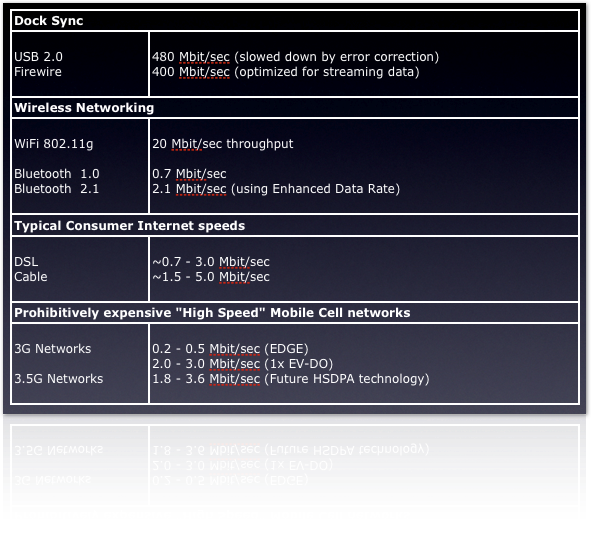
Of course, there is already a wireless iPod: the Nike+iPod nano, which uses a wireless transmitter to talk to its shoe sensor and record data. Recording a relatively slow stream of performance data makes sense over existing wireless technology, while squirting around songs--which die after a short period of time--simply doesn't.
Myth 10: From a Digg Zune fan: "a single song [squirt] takes about 7 seconds (if not less) and a full album about 30 seconds"
Of course, if a single song takes, in ideal conditions, x seconds, an album has to take around 10 times that long. In reality, a single song takes around half a minute to squirt between Zunes, longer if it uses a higher bit rate.
Factor in the ridiculous interface for setting up a transfer, and theoretical Zune users would spend more time squirting songs than they'd actually be able to listen to them. After spending ten minutes ineffectually squirting at the girl, she'll be gone and unlikely to call again.
One last, free squirt of a Myth: Plastic brown is a nice color.
No it's not, and certainly not as delivered in the Zune. Microsoft picked brown out of a list of trendy colors some fashion consultant picked for 2006. Remember how much success the Gap had in dressing up dotcom workers in international orange in 2000? Bleah! Picture warehouses of unsold orange capri pants and deck shoes.
And remember HP's heavily marketed tattoos for its cobranded iPod? Probably not. HP no doubt spent a lot of money in focus groups to determine what the cool kids were talking about, but that didn't fool anyone into thinking that printable stickers were the think to have.
Also, there's nothing "ethnic" about plastic brown. If I had a dollar for every "I want a Zune because I'm not white," comment I've seen posted on Zune astroturf sites, I'd have a career in race targeted marketing.
Nobody's going to identify with the Zune's plastic brown apart from, possibly, an Old Navy mannequin. Anyone wanting to advertise their concern for Africa already has a color in mind: (Product) Red.
Does Microsoft really think people of color will be attracted to an inferior product because it is plastic brown? Oprah says no.
This Series









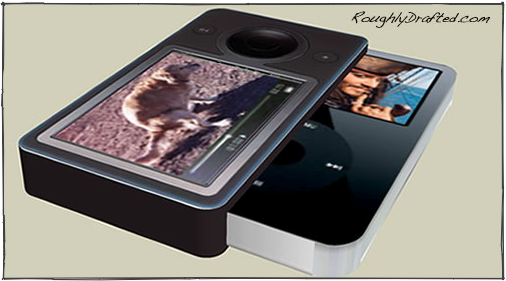
Friday, October 20, 2006

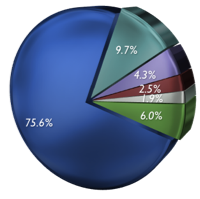


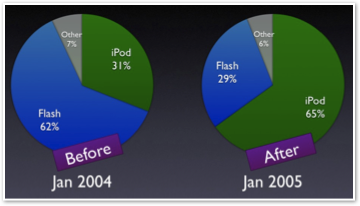
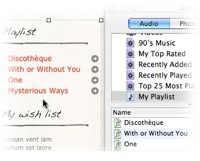

 Bookmark on Del.icio.us
Bookmark on Del.icio.us Discuss on Reddit
Discuss on Reddit Critically review on NewsTrust
Critically review on NewsTrust Forward to Friends
Forward to Friends
 Get RSS Feed
Get RSS Feed Download RSS Widget
Download RSS Widget




